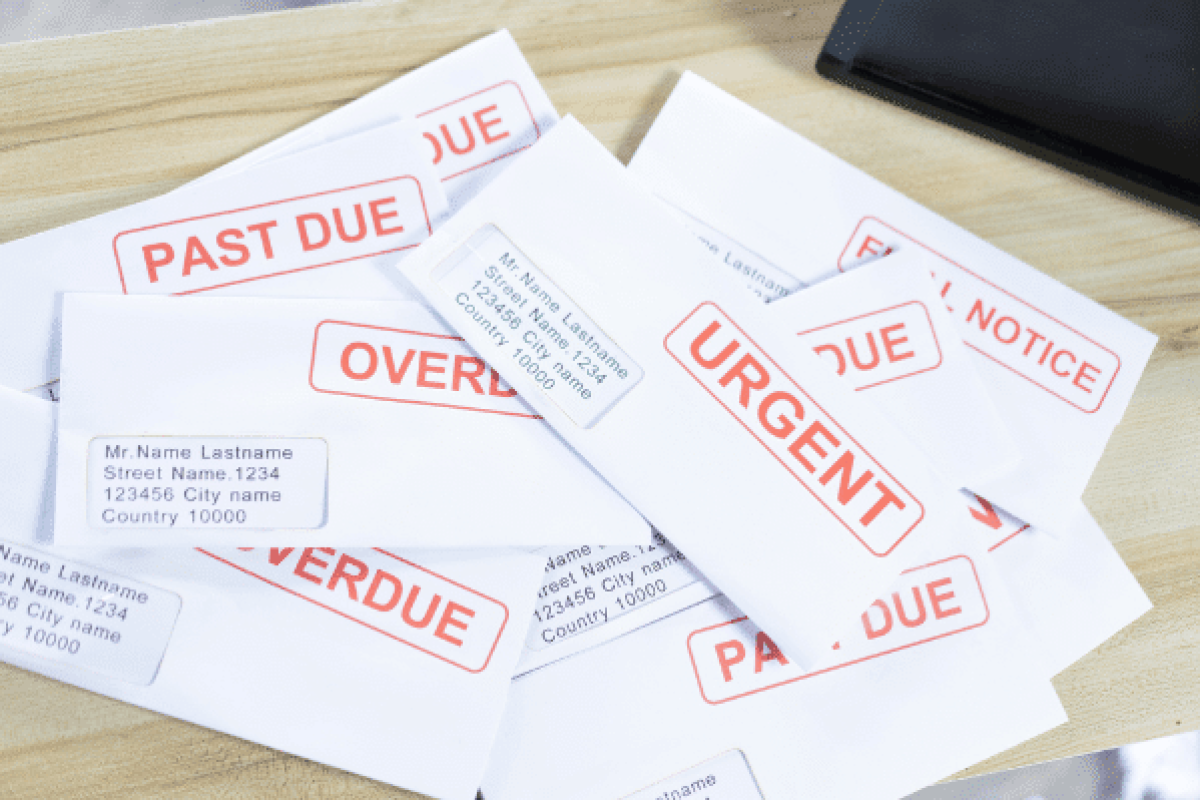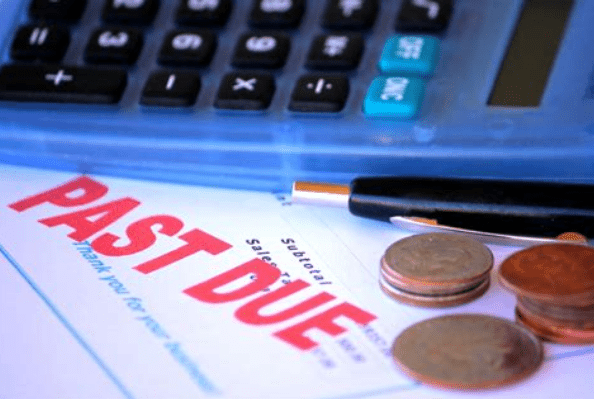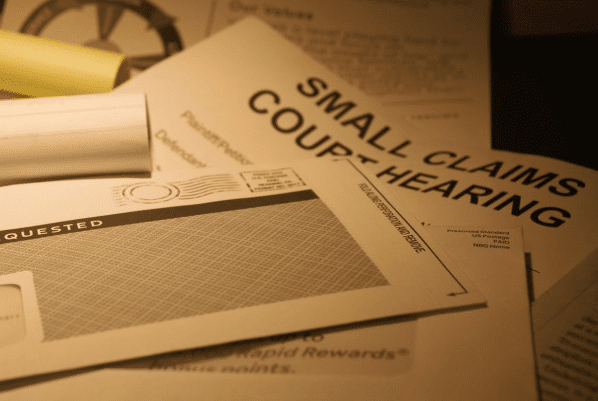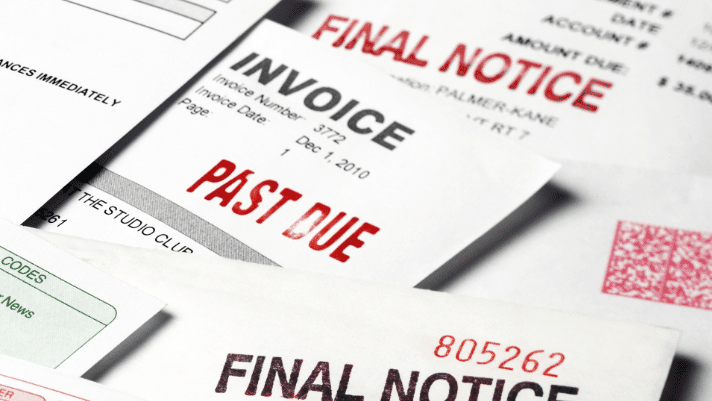Facing a debt collection lawsuit in Connecticut? ZumaZip’s got you covered! Our automated service streamlines the process, making it a breeze to respond and protect your rights. Let’s tackle this together!
Did you hear about the debt collector who went to a mind reader? — There was no charge.
Love the joke! It’s so true, dealing with debt collectors can feel like a mind-reading act sometimes.
And you hit the nail on the head—ignoring that debt collection lawsuit won’t make it disappear. In fact, it could make matters worse. That’s where ZumaZip steps in to lend a hand.
In this article, we’ll dive into how to tackle that summons for a debt collection lawsuit in Connecticut. Trust me, it’s simpler than you think, and it’ll help lift that debt collection cloud hanging over you. Let’s get started on clearing the air!
- Deadlines
- Steps to Respond
- What is ZumaZip?
- Statute of Limitations in New Jersey
- New Jersey Legal Aid Organizations
- Key Takeaways
- Guides for Other States
Connecticut Deadline for Answering a Debt Collection Summons
Spot on! In Connecticut, you’ve got a solid 30 days from the “return date” on that summons to respond to a lawsuit. Ignoring it isn’t an option if you want to keep the upper hand.
Skipping out on responding could land you in hot water with a “default judgment” against you—meaning you’re on the hook for the debt, plus extra for attorney’s fees and interest. Yikes!
But fear not! Answering a debt collection lawsuit is totally doable and definitely worth it. It’s your chance to defend yourself and avoid that automatic loss. Just remember to act within those crucial 30 days. Let’s take charge and tackle this together!
Connecticut Answer to Summons Forms
In Connecticut, there are two documents that you need to send to the court in order to respond to a debt collections lawsuit. Those documents are as follows:
- An “Answer,” and
- An “Appearance.”
To make things easier, there are online forms that you can fill out, making those two documents very easy to create. Where can you find those fillable forms online? You can find them in two places:
First, you can use the answer and appearance forms provided by ZumaZip. They are created especially for lawsuits in the State of Connecticut. They are, without question, the easiest and most user-friendly forms you can use to answer a debt collection lawsuit in Connecticut.
Second, you can use the forms provided by the Connecticut court system. They are available by clicking below:
It’s crucial to file both forms when responding to a debt collection lawsuit in Connecticut. If you miss one, you risk the court slapping you with a default judgment.
Why bother with these forms? Well, Connecticut’s court system, like any other, has strict guidelines on what your response should include. These forms ensure you’re ticking off all the right boxes and following the rules to a tee. And with ZumaZip, you’re guaranteed to stay in line with Connecticut’s requirements. Let’s keep it by the book and make sure your response stands strong!
Answer Filing Fees for Connecticut
Luckily, there is no filing fee when answering a lawsuit in Connecticut.
Steps to Respond to a Debt Collection Case in Connecticut
When a debt collector sues you in court, the collector must send you two documents, (i) a Summons and (ii) a Complaint. If you have been sued, then you have probably already received those two documents.
The Summons is just a fancy way of putting in writing that the debt collector (the “plaintiff”) is officially notifying you of the lawsuit.
The other document — the Complaint — is what the plaintiff uses to lay out all of the facts surrounding the debt collection case. In the Complaint, you will see a lot of legalese. Do not get worried. It is just a lot of jargon that essentially states that you owe a certain amount of money, and explains why the plaintiff thinks you owe that money.
So, when you get a Summons and Complaint in the mail, you know that the Summons is just notifying you of the lawsuit, and the Complaint lays out all the facts that the plaintiff must prove to get a judgment against you.
Once you receive the lawsuit, the “ball is now in your court,” as they say. As mentioned above, if you do not respond to the lawsuit, then you will automatically lose the case. In addition, the court will enter a default judgment that says that you owe the money (plus fees and interest) that the plaintiff says you owe.
So, you are better off responding to the lawsuit. Accordingly, there are two ways to respond, either by filing a “Motion,” or filing an “Answer.” You will want to respond with an Answer in this context, particularly if you are representing yourself. And remember, you have 30 days in which to file that Answer. So, don’t wait too long.
In responding to a debt collection complaint with an Answer, there are four basic steps you need to go through. They are as follows:
- Create the Answer document;
- Provide an answer to each issue in the complaint;
- Assert your affirmative defenses; and
- File one copy of the Answer document with the court, and serve one copy on the plaintiff.
No need to worry if you are feeling a little overwhelmed at this point. We are now going to go through each step in some detail so it is easy to understand.
1. Create an Answer Document.
Before you can get to the nitty gritty of telling the court all the reasons why you do not owe all the money that the debt collector says you owe, you need to make sure that you give the court some basic contact information.
The good news is that the Summons and Complaint has most, if not all, of the information that you need to put into your Answer document. That information includes the following:
- Your personal contact information. Your name, address, and (if applicable) your attorney’s name and address;
- The contact information for the plaintiff. The name of the attorney suing you, the name of the company or other debtor suing you, and other information.
- Information about the court. The name of the court in Connecticut where the lawsuit was filed, the court’s address and other contact information.
- Case identifying information. Every case has a case number (sometimes called a docket number, civil number or index number), and the debt amount at issue, among other important pieces of information.
All of this numerical and identifying information might seem like overkill, but it is very important so that the court can move your case forward properly. As noted, it should not be difficult to provide the information above because you will find it all in the Summons and Complaint that you received from the plaintiff.
2. Answer each issue of the Complaint.
Once you have created the Answer and put in all of the necessary case information, it is now time to tell the court whether the facts stated in the Complaint are true or false. Indeed, the response is called an “Answer” because you literally need to “answer” everything stated in the Complaint.
The important thing to remember, though, is that you do not need to spend lots of time writing out a long narrative to respond to the Complaint. Rather, all you need to do is tell the court in your Answer whether you “Agree” or “Disagree” with the information in each of the numbered paragraphs in the Complaint. If you don’t know enough to agree or disagree with the information in a certain paragraph, then you can also answer a paragraph by saying “Do Not Know.”
It’s that simple. For every paragraph you see in the Complaint, you simply say “Agree,” “Disagree,” or “Do Not Know.”
ZumaZip walks you through this process to make it easy.
Keep your guard up! Debt collectors might try to pull a fast one by mixing true and false info in the same paragraph. When you spot those sneaky tactics, your best bet is to hit ‘Disagree’. That way, you’re not letting any questionable claims slide. Stay sharp and stick to your guns!
3. Assert affirmative defenses.
Once you have had the opportunity to respond to each of the plaintiff’s statements in the Complaint, it is now your turn to give your side of the story. In short, you can now assert your “affirmative defenses,” which is another way of saying that you can tell the court why you do not owe the money the plaintiff says you owe.
While at this point you may be inclined to give a long statement about your situation with regard to the debt, keep in mind that “brevity is bliss.” So, try to keep it simple and brief. To that end, here are some common affirmative defenses that you can, and should, include in your Answer when appropriate:
- The debt is connected to an account that is not yours.
- You do not owe on the debt, because the associated contract has already been terminated or canceled.
- The plaintiff waited too long to sue, so the “statute of limitations” has already run out. (For more information about the statute of limitations, see below).
- You already paid off the debt.
- The creditor has excused you of the debt.
- You have paid part of the debt.
- You are liable for the debt as a co-signer on a contract, but you were not informed of your rights as a co-signer.
- The complaint is missing paperwork because it does not include the actual contract (such as the initial credit card agreement) on which the debt is based.
There are other affirmative defenses available, but the above are the most common. Please note that, unfortunately, your inability to pay a debt is not an affirmative defense that can be put into an Answer.
4. File the answer with the court and serve the plaintiff.
You are almost done, and this is the easy part — mailing the Answer. Here are the steps to properly file and serve the Answer (and the Appearance document, since Connecticut requires that as well).
- Step 1 – Make two copies of the Answer paperwork.
- Step 2 – Send the original (the one you signed) to the court.
- Step 3 – Mail a copy to the plaintiff’s attorney.
- Step 4 – Keep the second copy for your records.
What are the correct addresses? The address for the plaintiff’s attorney should be included with the Summons and Complaint you received in the mail. The address for the court may be on the Summons and Complaint, but if not, use this guide to Connecticut courthouses to find the correct address.
ZumaZip files your Answer for you so you don’t need to buy a printer or go to the post office.
Let ZumaZip Help You Through the Process
ZumaZip makes it easy to respond to a debt collection lawsuit.
ZumaZip has your back every step of the way! Their step-by-step web-app guides you through crafting your response to a complaint, leaving no stone unturned. Once you’re done, you’ve got options: print out the completed forms and send them off yourself, or opt for ZumaZip’s premium service. For a small fee, they’ll handle the filing for you and even have an attorney give your document the once-over. It’s all about making your life easier. Let’s get those responses filed and put your mind at ease!
Statute of Limitations on Debt in Connecticut
Generally, the statute of limitations for credit card debt, and for other written contracts, is 6 years in the State of Connecticut. That means that a company or individual has 6 years to sue on a debt. If a debt collector fails to try to collect a debt within 6 years, then he loses the ability to collect at all.
Please note, however, that there may be a different statute of limitations period for other types of debt. See the table below:
| Connecticut Statute of Limitations on Debt | |
| Debt Type | Deadline in Years |
| Oral | 3 |
| Written | 6 |
| Mortgage | 6 |
| Open | 3 |
| Credit Card | 6 |
| Auto Loan | 4 |
| State Tax | 15 |
| Judgements | 20 |
Source: Findlaw | |
ZumaZip helps you assert the statute of limitations
Connecticut Legal Aid Organizations
There is legal help out there if you need it in connection with a debt collection lawsuit. Contact the following for more assistance:
Connecticut Legal Aid
62 Washington Street, 4th Floor
Middletown, Connecticut 06457
Phone (860) 344-0447
Fax (860) 346-2938
Connecticut Legal Services
1290 Silas Deane Highway, Suite 3A,
Wethersfield, Connecticut 06109
Each creditor, whether a large enterprise or small company, must follow Connecticut’s fair debt collection practices. Even if you owe a debt, you have a right not to be harassed by debt collectors. If you think that a collector has violated your rights, then you should speak to an attorney about possibly adding a counterclaim when you answer a lawsuit. There are some ways you stop a harassing collector from calling you and avoid getting debt collector calls from blocked numbers.
Key Takeaways
You’ve got the playbook down for responding to a debt collection lawsuit in Connecticut! Here are your key takeaways to keep in mind:
- Time’s ticking! You’ve got a 30-day window to respond, so don’t delay.
- Lean on ZumaZip for guidance or use the Answer form provided by the Connecticut courts to nail down your response.
- Remember to file the Appearance form along with your Answer—don’t let it slip through the cracks.
- When crafting your Answer, be thorough:
- Address each numbered paragraph in the complaint.
- Lay out all your affirmative defenses.
- Don’t forget to file the original with the court, send a copy to the plaintiff, and hold onto one for yourself.
With these tools in your arsenal, you’re ready to tackle that lawsuit like a pro!
What is ZumaZip?
ZumaZip is a convenient solution designed to streamline your response to a debt collection lawsuit. Here’s a breakdown of what you can expect when you use ZumaZip:
Firstly, you’ll access our user-friendly web application, which guides you through the process step by step. You’ll be prompted to answer a series of questions related to your specific situation. Once you’ve completed the questionnaire, you have the option to either print out the finalized forms and mail them to the appropriate courts yourself, or you can opt to utilize ZumaZip’s services to file them on your behalf. Additionally, if you choose this option, an attorney will review your document for added peace of mind.
If you’re seeking guidance on how to effectively respond to a debt collection lawsuit, ZumaZip can provide the assistance you need. Feel free to explore our FAQs for more information on what ZumaZip has to offer.
What if I haven’t been sued yet?
If you’ve only received a collections notice, but not a lawsuit, the best way to respond is with a Debt Validation Letter. When a debt collector contacts you in any way, whether it’s by phone or mail, you can respond by formally requesting a debt validation with a Debt Validation Letter . This letter notifies the collector that you dispute the debt and forces them to provide proof you owe the debt. They can’t call you or continue collecting until they provide validation of the debt. This flowchart shows how you can use a Debt Validation Letter to win.
Get started with a Debt Validation Letter here.
How to Answer a Summons for debt collection in all 50 states
Here’s a list of guides on how to respond to a debt collection lawsuit in each state:
- Alabama
- Alaska
- Arizona
- Arkansas
- California
- Colorado
- Connecticut
- Delaware
- Florida
- Georgia
- Hawaii
- Idaho
- Illinois
- Indiana
- Iowa
- Kansas
- Kentucky
- Louisiana
- Maine
- Maryland
- Massachusetts
- Michigan
- Minnesota
- Mississippi
- Missouri
- Montana
- Nebraska
- Nevada
- New Hampshire
- New Jersey
- New Mexico
- New York
- North Carolina
- North Dakota
- Ohio
- Oklahoma
- Oregon
- Pennsylvania
- Rhode Island
- South Carolina
- South Dakota
- Tennessee
- Texas
- Utah
- Vermont; Vermont (Small Claims court)
- Virginia
- Washington
- West Virginia
- Wisconsin
- Wyoming
Guides on how to beat every debt collector
Hey there! Facing off against a debt collector can feel like a daunting challenge, but fear not! We’re here to help you navigate through it all with our handy guides designed to assist you in beating every debt collector you encounter. Whether you’re facing a new lawsuit or dealing with a persistent collector, we’ve got your back. Stay positive, stay informed, and let’s tackle this together!
- Absolute Resolutions Investments LLC
- Accredited Collection Services
- Alliance One
- Amcol Clmbia
- American Recovery Service
- Asset Acceptance LLC
- Asset Recovery Solutions
- Associated Credit Services
- Autovest LLC
- Cach LLC
- Cavalry SPV I LLC
- Cerastes LLC
- Colinfobur
- Covington Credit
- Crown Asset Management
- CTC Debt Collector
- Cypress Financial Recoveries
- Delanor Kemper & Associates
- Eagle Loan of Ohio
- Educap
- Estate Information Services
- FIA Card Services
- Forster & Garbus
- Freshview Solutions
- Fulton Friedman & Gullace LLP
- Harvest Credit Management
- Howard Lee Schiff
- Hudson & Keyse LLC
- Integras Capital Recovery LLC
- Javitch Block
- Jefferson Capital Systems LLC
- LVNV Funding
- Mannbracken
- Mariner Finance
- Medicredit
- Michael J Adams PC
- Michael J Scott
- Midland Funding LLC
- Mullooly, Jeffrey, Rooney & Flynn
- Mountain Land Collections
- MRS Associates
- National Collegiate Trust
- Nationstar Foreclosure
- Northstar Capital Acquisition
- NCEP LLC
- NRC Collection Agency
- OneMain Financial
- Palisades Collection LLC
- Pallida LLC
- Paragon Revenue Group
- Pinnacle Collections Agency
- PMAB LLC
- Portfolio Recovery Associates
- Provest Law
- PYOD LLC
- Reunion Student Loan Finance Corporation
- Revenue Group
- Regents and Associates
- RSIEH
- Salander Enterprises LLC
- Second Round Sub LLC
- Security Credit Services
- Sherman Financial Group
- Suttell and Hammer
- T-Mobile
- Transworld Systems
- Tulsa Teachers Credit Union
- UCB Collection
- Velo Law Office
- Velocity Investments
- Waypoint Resource Group
- Weinberg and Associates
- Wolpoff & Abramson
Settle your medical debt
Having a health challenge is stressful, but dealing medical debt on top of it is overwhelming. Here are some resources on how to manage medical debt.
- Am I Responsible for My Spouse’s Medical Debt?
- Do I Need a Lawyer for Medical Bills?
- Do I Need a Lawyer to Fight Medical Bill Debt?
- Does Bankruptcy Clear Medical Debt?
- How Much Do Collection Agencies Pay for Medical Debt?
- How to Find Medical Debt Forgiveness Programs
- Is There a Statute of Limitations on Medical Bills?
- Medical Debt Statute of Limitations by State
- Summoned to Court for Medical Bills — What Do I Do?
- Summoned to Court for Medical Bills? What to Do Next
Stop calls from Debt Collectors
Do you keep getting calls from an unknown number, only to realize that it’s a debt collector on the other line? If you’ve been called by any of the following numbers, chances are you have collectors coming after you, and we’ll tell you how to stop them.
- 800-390-7584
- 800-289-8004
- 800-955-6600
- 877-366-0169
- 877-591-0747
- 800-278-2420
- 800-604-0064
- 800-846-6406
- 877-317-0948
- 888-899-4332
- 888-912-7925
- 202-367-9070
- 502-267-7522

































